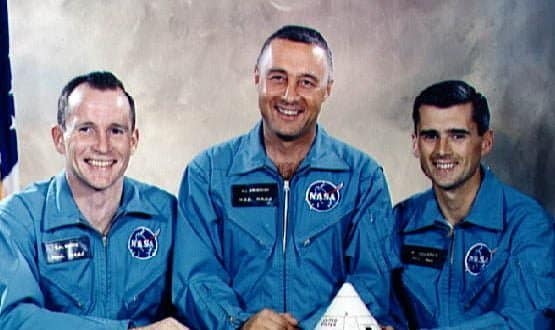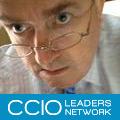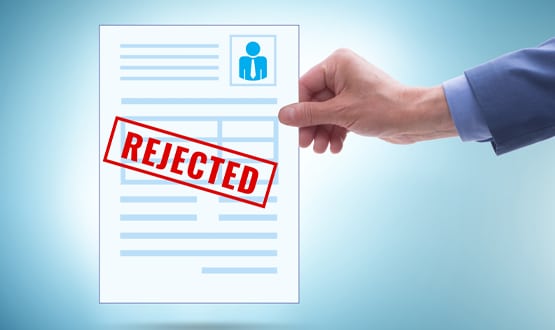Joe’s view of the end of CfH
- 10 April 2013

I went to my first HANDI meeting before Christmas. HANDI, for anybody who doesn’t know, is the Healthcare App Network for Development and Innovation; it’s a community interest outfit that wants to promote the rapid development and deployment of “beautiful tools” that “play nicely together” and do useful stuff.
The weather in Gateshead was filthy and many roads were flooded on the day chosen for the inaugural meeting of the North East HANDI cluster.
But an interesting crowd turned up, including several clinicians, a couple of local government officials, some app developers, and some IT types who spoke a different language to the rest of us (but who could speak to each other in what I took to be fluent Klingon).
One man described himself as a venture capitalist. There were two presentations, both of which I almost understood.
That was then…
But that’s enough about the future for now. The start of the month saw the end of the arm’s length body that was NHS Connecting for Health.
Latterly, CfH became something of a barge-pole’s length body, as successive governments attempted to distance themselves from the blame attached to its failure to deliver supposedly ‘strategic’ IT systems to acute trusts (although it was supposed to do other things as well).
At the time I joined, a colleague pointed out that “the programme has fallen over in the street and the general public are pointing and laughing at it.”
However, I do feel that its passing should be marked by some sort of social event like a party or a wake and some kind of closing ceremony. I wonder if the local service providers and EHI could summon up a few quid to fund a great closing dinner in a grand London venue?
In that unlikely event, I would love to have the opportunity to speak to my 1,500 fellow CfH veterans. I have even prepared my speech:
“Ladies and Gentlemen, I’m extremely grateful to EHI, BT and CSC for this opportunity to talk to you this evening. My name is Joe McDonald and I am an alcoholic… oh blast, wrong meeting (pause for laughter).
Sorry, I meant to say… my name is Joe McDonald and I am a child and adolescent psychiatrist.
I started out as a junior doctor doing general medicine and surgery in Newcastle, but found that insufficiently challenging. So I moved to Liverpool to undertake my training in general adult psychiatry.
That kept me interested for quite a while, but eventually I wanted something a bit more difficult. So I trained as a child and adolescent psychiatrist, and after I tired of that I specialised in teenagers and eventually in teenagers with psychosis. So, I saw lots of teenagers with psychosis. Schizophrenia.
I don’t know if schizophrenia has ever touched your life, but it is a terrible illness that blights the lives of many young people. I hate schizophrenia. I hate it with a passion.
Although we have made some big strides in my lifetime when it comes to its treatment, we aren’t close to identifying the cause or causes. It appears to be multifactorial in cause, and we have been unable unravel the various environmental, genetic and physical factors.
Computers seem to be one way to unravel the schizophrenia Gordian knot. If I just had enough data, maybe I could understand schizophrenia and find the vaccine.
But as everyone in this very grand room knows, computerising the NHS is not all that simple. The National Programme for IT in the NHS was the most ambitious IT programme in history, and I only joined five years ago.
I was full of enthusiasm. The people I met and worked with were full of enthusiasm. I felt this was the best project in the world to be working on.
For me, this programme was the moment in 2001: A Space Odyssey where the black tablet appears. Potentially the greatest leap forward in medicine since Hippocrates decided it might be a good idea to start classifying symptoms into syndromes. The noughties equivalent of the space programme in the sixties.
Indeed, JFK’s mission to ‘put a man on the moon and return him safely to the earth before the decade is out’ was, by comparison, a relatively simple undertaking – and critics decried that as a Kennedy vanity project in the same way that they decried NPfIT as a vanity project for Tony Blair.
Nothing worthwhile ever comes easy. When Gus Grissom, Edward White and Roger Chaffee burned to death on the launch pad of Apollo1, in front of the helpless mission control staff, there were many who called for the cancellation of the programme.
But, after a rigorous investigation and lessons learned exercise, the decision was that the programme should continue – eventually putting the recently deceased Neil Armstrong on the moon.
Well my friends, we have just had our Apollo 1 moment. Do we go home and lick our wounds, count our money and move on?
I believe the costly lessons we have learned will be lost if we all go our separate ways tonight when the music stops. I still hate schizophrenia and I still need enough data to overcome it.
I believe that in THIS room, probably more than in any other room in the world, is the knowledge to make this dream reality.
The stakes are much higher here than in the space programme, we are talking about millions of lives and the relief of untold suffering. As JFK said of the space programme: ‘We seek to do these things not because they are easy; we do them because they are hard.’
Enjoy the rest of your evening. If we worked together on something, meet me in the bar and I’ll buy you that drink I owe you. Give yourself the morning off maybe; but by tomorrow afternoon I want you back at work and I want you to think about this:
When your grandchildren sit on your knee and say: ‘Grandad (or grandma) what did you do in the internet revolution?’ you should be able to smile with pride and say: ‘Son (or daughter), I was one of the brave pioneers who worked on the National Programme for IT in the NHS.’
They will say: ‘But wasn’t that a failure?’ And you will be able to reply: ‘No. Some people said that. But some of us knew it was just the beginning’."


Joe McDonald
Joe McDonald is a practising NHS consultant psychiatrist. Over the past five years he has been an NHS trust medical director and national clinical lead for IT at NHS Connecting for Health – a stint that included 18 months as medical director of the Lorenzo delivery team!
His experiences in the National Programme for IT in the NHS have left him with a passion for usability and "end user knowledge networks.” He is the founding chairman of the National Mental Health Informatics Network. Motto: we don’t get fooled again. Follow him on twitter @CompareSoftware




